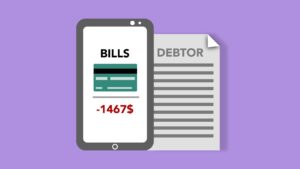Payday loans can be extremely useful to individuals who need a little extra cash to help with a payment; they can even sometimes be a financial life-saver! However, it is extremely important to ensure that the online lender you go with is safe and won’t scam or take advantage of you as the recipient of a loan. Needing a loan can be stressful in itself, so you need to make sure that you are using a trusted and legitimate loan company.

What is a legitimate online lender?
For an online lender to be legitimate, you should be able to:
- Give your details safely.
- Get the information you need.
- Find out which regulating body they are with.
Mark Schlipman, founder and CEO of Schlipman Wealth Advisors, suggested that contacting the BBB is the best way to start your vetting process. He said that “legitimate lenders must register with state agencies before soliciting or giving out loans. Contacting the Better Business Bureau is a way to determine if the lender is trustworthy, and to see posted reviews.”
How can I check if a loan company is legitimate?
Check for an online presence.
Before you do business with an online lender, do an internet search for the company name.
Check the site is https: Ensure the lender’s site is secure. This means the web address will start “https” and not “http”- the ‘s’ stands for secure. If the URL starts with “http” only the site may be a scam and is not secure. You should also see a padlock symbol on any pages that ask you to provide personal information. The padlock means the address is protected from identity thieves. You can then click on the padlock to see if the security certificate is up to date. Keep your eyes peeled when it comes to the website of your lender.
You can also look up the domain name registration to see when a website was registered. This may help you spot a site that is brand new and may have been created for unscrupulous purposes.
Loan brokers and loan companies must be registered in certain states. If they are, they will list that license information on their website. Look for it, and when in doubt, verify it.
Remember, never enter personal information or sensitive business information on a website that is not secure!
Research the business location.
Look under the website contact information for a physical address, then look that address up on google maps. You may be surprised how many of these searches result in a residential home address or a business that has nothing to do with lending! If the only address is a P.O Box, make sure you do additional research to verify the company is legitimate.
If there isn’t any contact information this will raise concerns about the legitimacy of your lender. If they do have a phone number, definitely give them a call. If you’re able to speak to someone you should get a good sense of the size and legitimacy of the operation.
You can also do a reverse search on the phone number calling you.
Check with the Better Business Bureau.
Even if the loan company has an online presence, that doesn’t necessarily mean that its operations aren’t predatory. Check the Better Business Bureau website to learn more about whether the lender is worth working with. You’ll typically see a letter grade from A+ to F, along with reasons for the grade.
In some cases, you’ll also be able to read customer reviews, which can give you a better idea of what to expect. If you find that the lender wouldn’t be a good fit, you can also use the website to find one that might be a better one.
Go with your gut – make sure you feel comfortable with the online lender!
Payday loan lenders want your business, but they shouldn’t be desperate for it. If you feel like the person you’re dealing with is overly aggressive or manipulative, it might be a sign that they’re trying to fluster you and make you feel like you need to make a decision before you get all the facts. If you feel uncomfortable about the process at any time, take a step back and consider why you feel that way and whether you should continue.

Most Common Loan Scams to Avoid
There are two common types of loan scams you’ll want to watch out for. (Both personal loan scams and business loan scams often operate in a similar fashion.) They are:
Advance Fee Loan Scams.
Here, loan scammers will promise a loan but will require money upfront to either pay for “insurance” or to make a few payments up front to “demonstrate good faith,” They will typically require these payments to be made with a gift card or prepaid card— either by asking you to mail them the card, or more commonly to read the information from the card to them over the phone.
Phishing scams.
In these scams, someone tries to get you to reveal sensitive information in order to provide you a loan. The loan never materializes but you or your business becomes a victim of identity theft.
Either can be devastating financially. Running a business is stressful enough without falling for a loan scam!
Was this article helpful?
Justine is a full-time writer with lots of expertise and a wealth of experience in the financial world. In particular, she specializes in household income and consumer finance across the United States. Follow her articles for useful advice and top tips, guides on how to save money and lots more.
